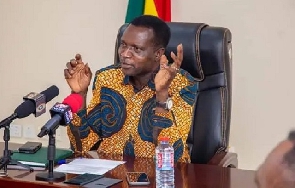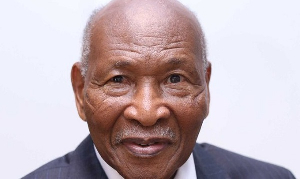Opinions of Wednesday, 10 January 2024
Columnist: Peter Partey-Anti
Tighten up the loose ends of all educational policies and programmes in 2024: An appeal to the Minister of Education
Since 2017, I have been evaluating the Ministry of Education's performance in terms of policies, programs, and their implementation up to 2023. Based on these assessments, I have proposed to the Minister of Education that the final year of this government should focus on:
Consolidating the achievements.
Ensuring policy coherence and consistency.
Addressing the remaining challenges in certain policies and programs to enhance
their ability to achieve their objectives.
Undoubtedly, significant efforts have been made to address various aspects of the educational system since 2017. Given the systemic nature of education, it was imperative to develop policies and programs that would harmonize different components and subsystems to attain set goals, including enhancing access, providing quality education, and improving learning outcomes to boost the country's human capital.
Efforts on the teacher front included upgrading colleges of education, implementing teacher licensure policies through the National Teaching Council (NTC), promoting teacher professional development, and addressing issues related to promotion and motivation.
Improvements to the school system involved constructing modern classrooms (STEM schools), providing laboratories, enhancing classroom environments, integrating technology (CENDLOS), and aligning parameters such as Pupil-Trained-Teacher Ratio and Pupil-Desk Ratio with international standards.
Content-wise, curricula were updated at various education levels by the National Council for Curriculum and Assessment (NaCCA) to meet 21st-century dynamics, with a new assessment framework emphasizing the practical application of knowledge.
Monitoring and supervision were strengthened through the National Schools Inspectorate Authority (NaSIA), training school authorities in collaboration with the Institute for Educational Planning and Administration - University of Cape Coast (IEPA - UCC), and establishing the National Education Leadership Institute (NELI). Additionally, legislation was enacted to streamline the operations of education agencies, such as the Education Regulatory Bodies Act, 2020 (Act 1023), and others.
In the realm of Technical and Vocational Education, there was a reorganization of institutions under the Ghana TVET Service, increased budgetary support, and the provision of modern teaching resources.
Efforts to improve access included initiatives like Free SHS and Free TVET, an increase in the capitation grant, and reforms to the Students’ Loan Trust Fund to eliminate financial barriers.
Despite these strides, the sector faced implementation challenges, leading to policy incoherence and inconsistency. Some key challenges include:
The implementation of the curricula at all levels has had serious challenges with accompanying educational resources. It took over three (3) years for textbooks to reach some of the basic schools after the rollout of the Standards-Based curriculum.
Currently, the Common Core Curriculum is in its third year of implementation yet
there are no textbooks.
The attempt to meet international standards with education parameters such as
Pupil-Teacher Ratio, Pupil-Desk Ratio, etc have all not been achieved because of a complete lack of direction in the provision of basic educational resources. Most basic schools in deprived communities continue to grapple with the challenge of a lack of teachers, desks, decent classrooms, etc.
Contrary to the picture we have always been presented with, parents still contribute monies to buy beds, prepaid, tile the dormitories of their wards, and even sometimes support feeding under the Free SHS. A policy without a sustainable mode of funding cannot stand the test of time.
The student loan scheme has not been able to live up to its objective. There is always a delay in the disbursement of funds and the amount is woefully inadequate.
The upgrade of the colleges of education has resulted in serious infrastructural
challenges in various colleges of education. We continue to pay these allowances
while there are no funds to complete abandoned projects on almost all campuses.
We continue to restrict entry into these colleges of education however, we want to improve the tertiary enrolment ratio and have also introduced Free SHS.
The National Standards Test as well as the School Education Assessment which
were designed to be diagnostic tests have been implemented poorly. The results of the last conducted NST have still not been sent to the respective schools. The NPLAF has not been implemented as it was supposed to be.
The disbursement of capitation grants has always been a big challenge making it
difficult for heads of basic schools to effectively run the schools. District/Municipal/Metropolitan education offices have resource constraints
making it difficult for them to carry out their monitoring and supervisory roles.
The efforts to integrate technology into the teaching and learning process by
providing Wi-Fi to various educational institutions has been a pale shadow of itself with most institutions having non-workable Wi-Fi.
The inability of the Ministry of Education to publish the annual Education Sector Performance Report (ESPR) since 2020 is a big indictment since that report gives an idea of how the sector is performing each year.
These challenges undermine the sector's progress. Therefore, as we enter the final year of this administration, I urge the Minister of Education to address these issues, tighten loose ends, and ensure the effectiveness of the education sector's policies and programs. Although substantial efforts have been made to align subsystems, it is crucial to address these issues to fully realize the intended outcomes of enhancing the country's human capital and maximizing social and private benefits from the sector’s investments.













